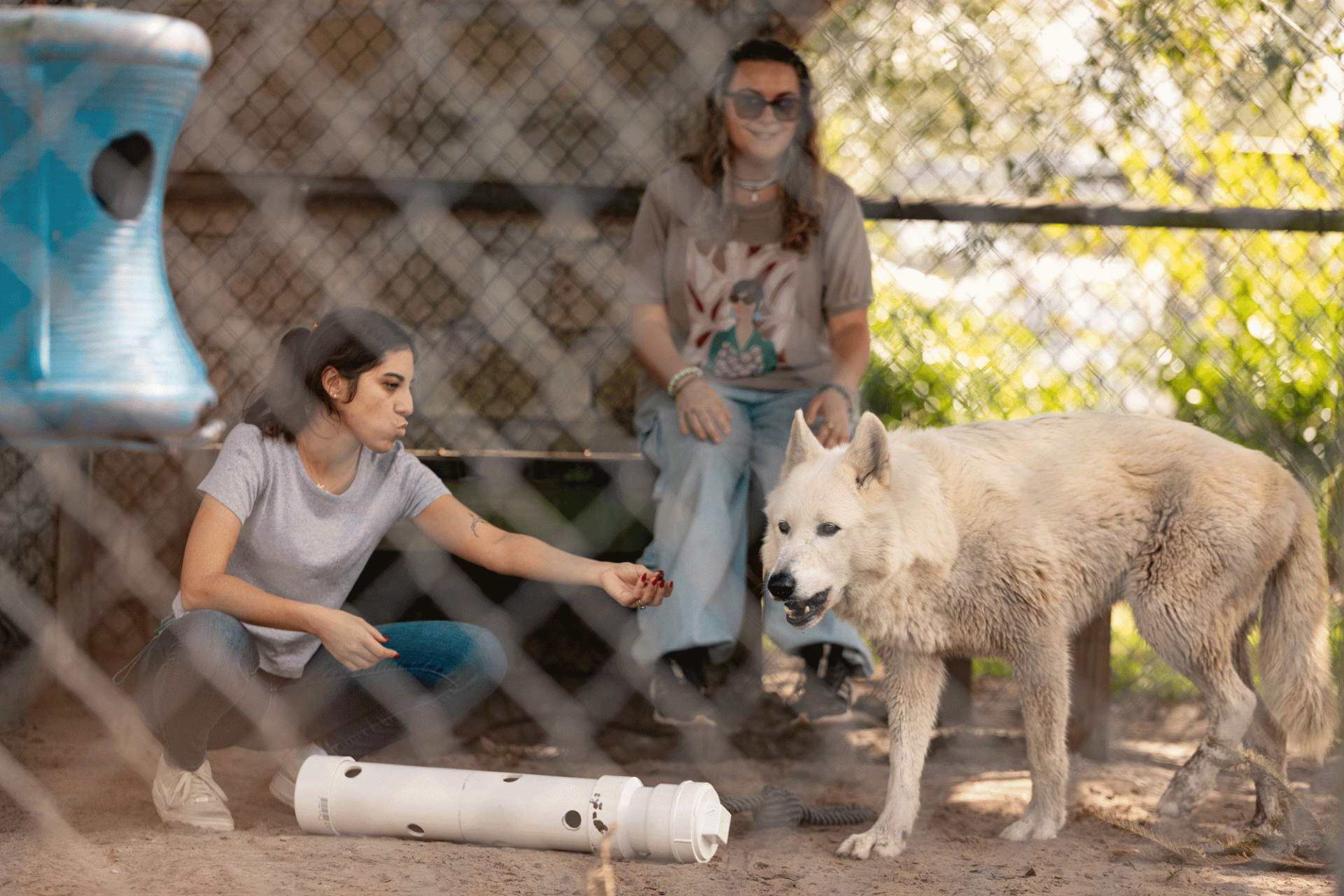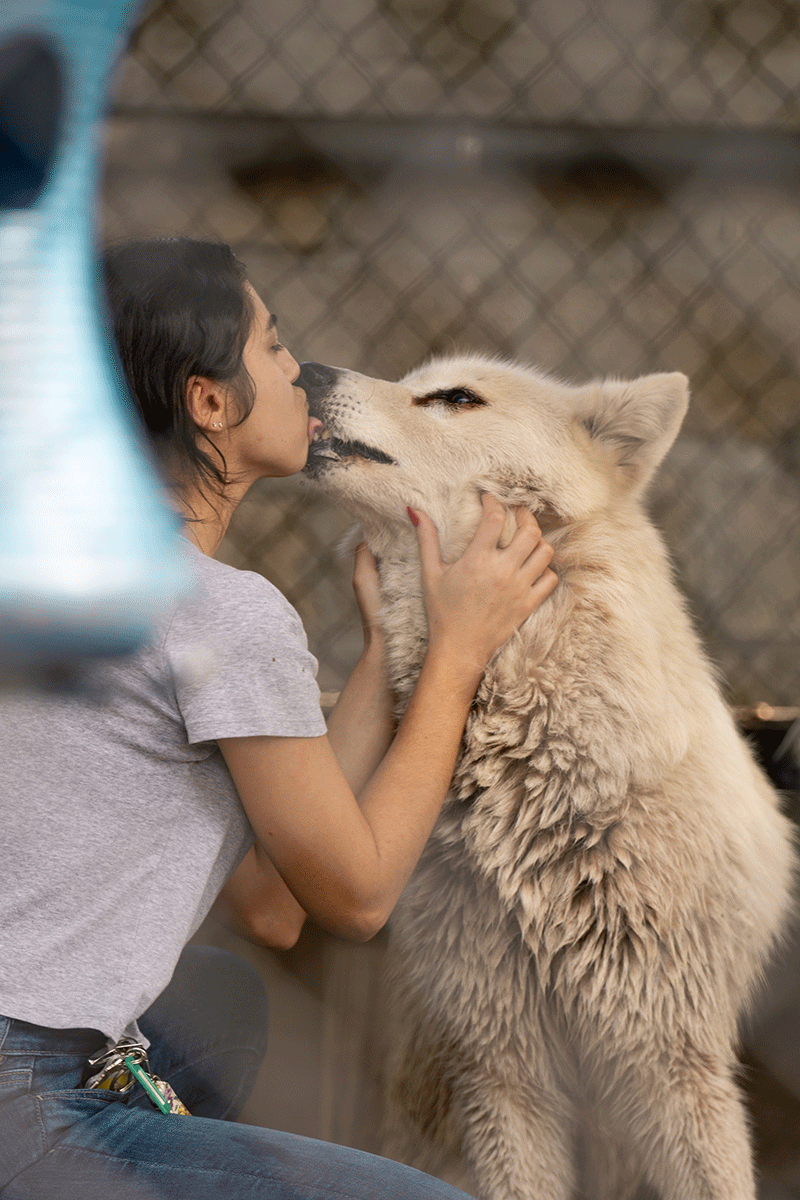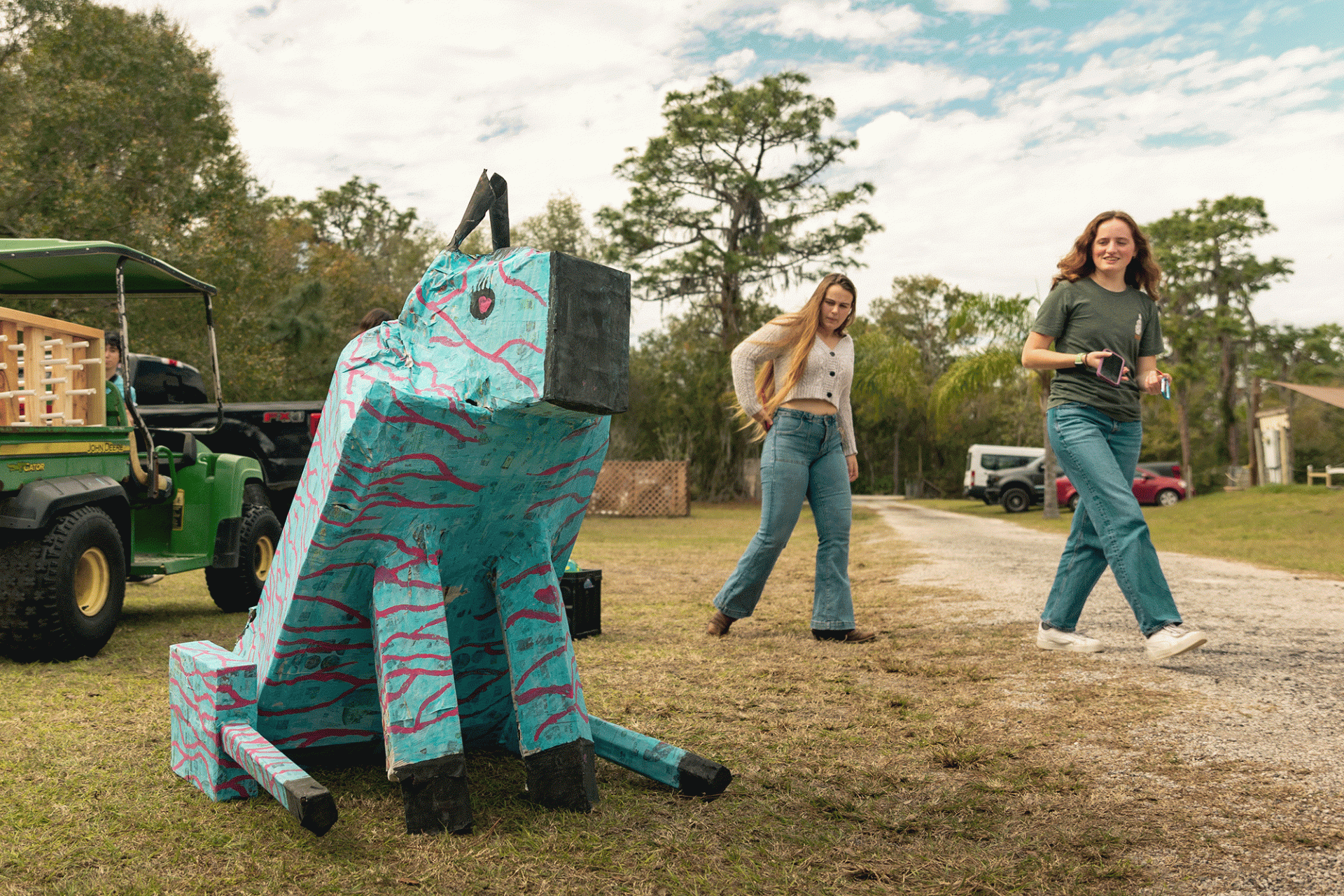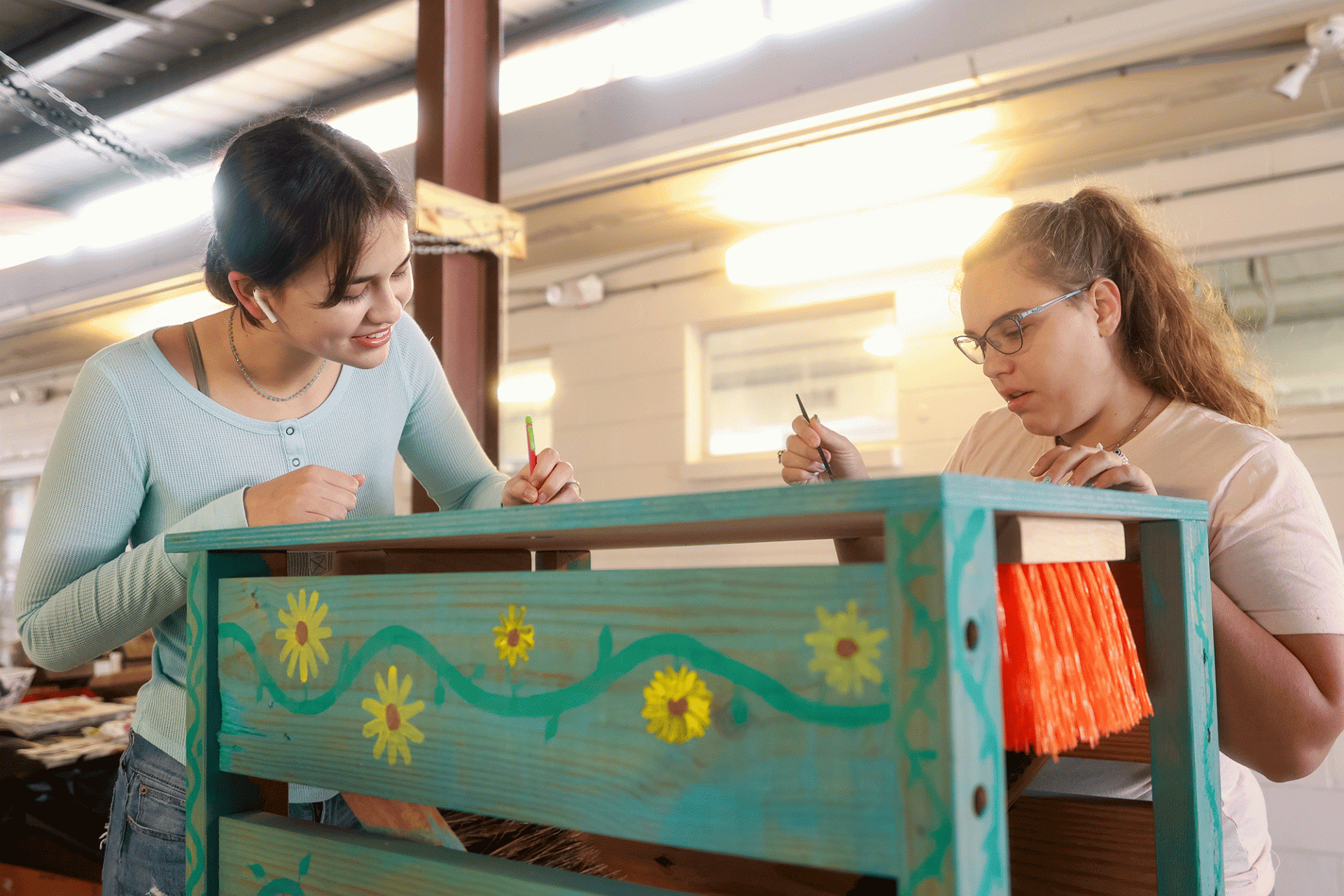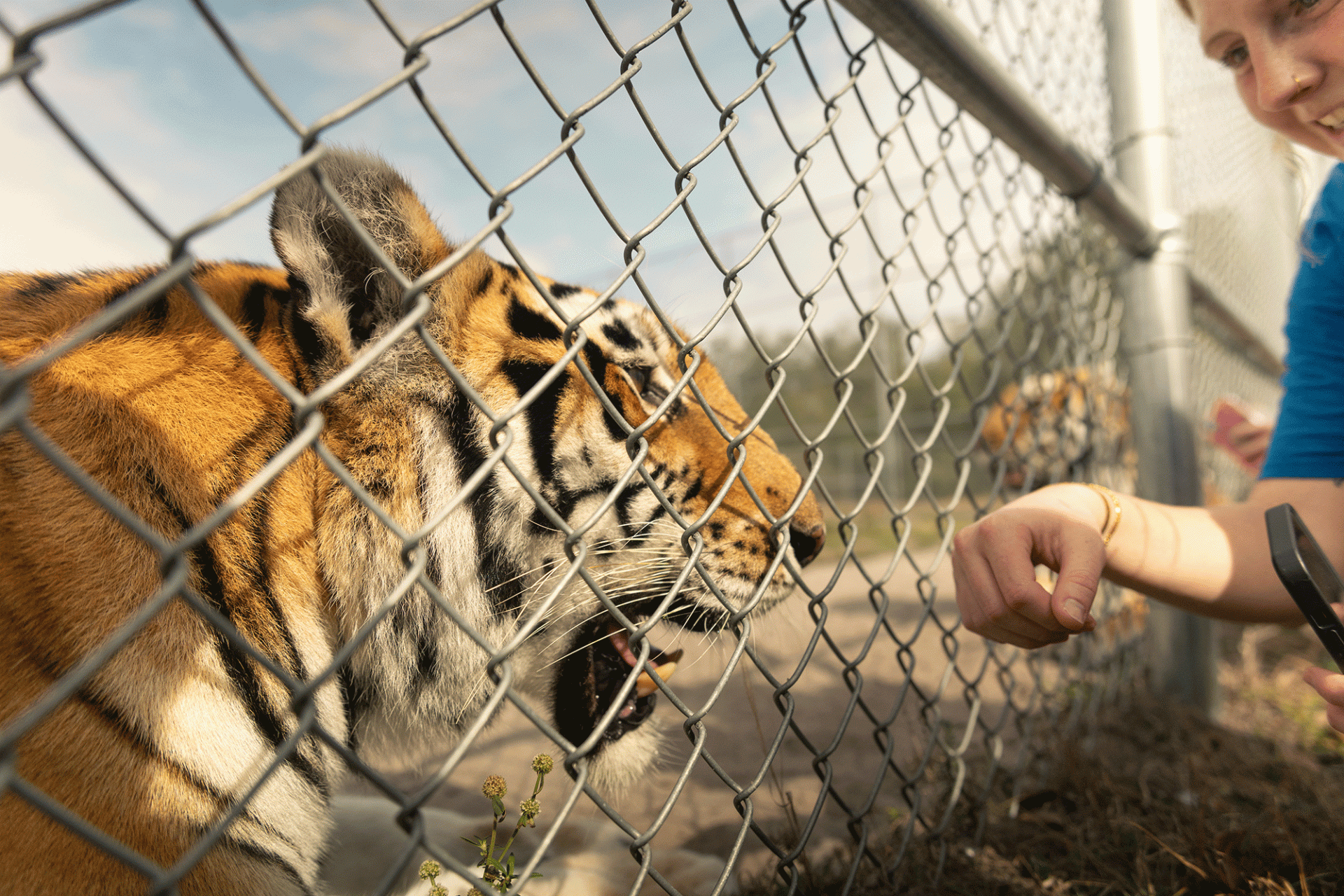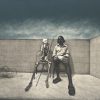The goal, explains Erin Frick, Ph.D., was to improve the lives of animals in human-care environments.
That was at the center of Frick’s Eckerd College Winter Term course called Animal Enrichment. An assistant professor of animal studies, Frick describes enrichment as “something that is added to an animal’s environment or routine with the intent to increase the well-being of that animal. Different types of enrichment can be given to encourage natural behaviors such as hunting, foraging and play. Enrichment also can increase fitness and social behavior, encourage bonding, and provide physical or mental stimulation.”
But the process is nowhere near as simple as tossing a ball or a chunk of meat into a cage.
Frick’s students spent the first part of the monthlong course in January doing background research and establishing goals for the animals. “And we talked with people at the facilities where the animals live to get their input,” she adds. “Then the students took those ideas and brought them to life.”
They did that inside the EC MakerSpace—a club workshop on Eckerd’s campus devoted to building, engineering and creating. The students attached a large brush to the ceiling of a box, so a tortoise could rub its shell against it. They drilled holes in PVC pipes to make puzzle feeders for wolves and other animals. They constructed a 5-foot paper-mache tree and a similar-sized paper-mache zebra named Reginald. Both would have food for the animals hidden inside. “Ways to present food that are a bit of a challenge for cognitive engagement,” Frick explains.
On a recent morning at the MakerSpace, Eckerd College Physics Shop Supervisor Paul Fratiello along with Academy of Senior Professionals at Eckerd College members Dave Duane and Tom Handcock moved from one workstation to the next offering help to students cutting and drilling holes in logs and pipes. Handcock is a retired businessman who has been an ASPEC member for 18 years. Like Fratiello and Duane, he knows his way around a workshop.
“We told Professor Frick we’d be delighted to help her class,” Handcock says. “And when she told us there would be 24 students, we built four more worktables in the Makerspace. Most kids don’t know how to use heavy shop equipment, so we show them and then back off. There’s nothing more exciting than teaching somebody how to do something, and then seeing them doing it even better than you did it,” he adds with a chuckle.
The idea of using enrichment, Frick explains, isn’t new.
“But it is a key and vital part of the role of modern zoo and animal management. Our goal is to provide additional support. The ultimate goal is to keep the animals’ environment dynamic and engaging, and a class like this lets the students have more of an in-depth picture of the whole process. At the end, they get to see the animals engage with what they made.”
And so they did. On Jan. 26, the final day of Winter Term, Frick, her students, Reginald, the tree and dozens of other objects made the 45-minute trip to Elmira’s Wildlife Sanctuary in Wimauma. A nonprofit facility staffed entirely by volunteers, the sanctuary is a forever home to dozens of exotic animals including several tigers, a leopard, tropical birds, a grizzly bear and several wolf hybrids—wolves that have been bred with dogs.
The first stop was at the wolf enclosure, where students placed puzzle feeders inside the fence. Ivy Sanborn, a senior animal studies student from Bar Harbor, Maine, took a seat on a bench near the back. A moment later, a wolf jumped up to sit beside her and started licking her face. “The wolf initiated that interaction,” Ivy says later, “which made it much more special for me. I wanted to make sure I wasn’t going to bother the wolves or invade their privacy. But I never expected to be in there petting them.”
At another enclosure, Robin Greenwood, Elmira’s founder and CEO, set up Reginald, the paper-mache zebra, with chicken parts inside. The instant Greenwood left and locked the gate, Lexi and Cort, a pair of adult Bengal tigers, rocketed from their holding area, headed straight for the zebra and ripped into it. “Reginald,” Greenwood said with a grin, “this is what you were made for.”
“It means a great deal that the Eckerd students are here, because we depend so much on this kind of volunteering,” Greenwood says later.
“Anytime we can enrich the lives of the animals, that’s just a wonderful thing. It’s hard for us to put in that much effort on a day-to-day basis, but when someone else can come out and help us … it all adds to the quality of life for the animals.”
The last stop was Stanley’s compound. A 12-year-old grizzly bear, Stanley was placed in a holding enclosure while volunteers set up the paper-mache tree now loaded with apples. When released, Stanley ambled over to the tree, shoved it to the ground and almost gently tore it limb from limb before gobbling up the apples.
Watching all this was Emma Lewis, a senior animal studies and environmental studies student from Roseville, California. She had helped build the tree. “Everything we did was extremely well thought out,” she says. “Dr. Frick is so passionate about her work, and that passion rubs off on us. Enrichment is one of the best ways to improve an animal’s welfare, so that their lives aren’t the same thing over and over again every day.”
The students say it’s not just the animals that benefit. “This class gave me this new sense of purpose for what I’m going to do after I graduate,” says Ivy. “It was one of the best classes I’ve ever taken at Eckerd. I never had so much hands-on time in the classroom. And I was challenged in a way I hadn’t been before.”





